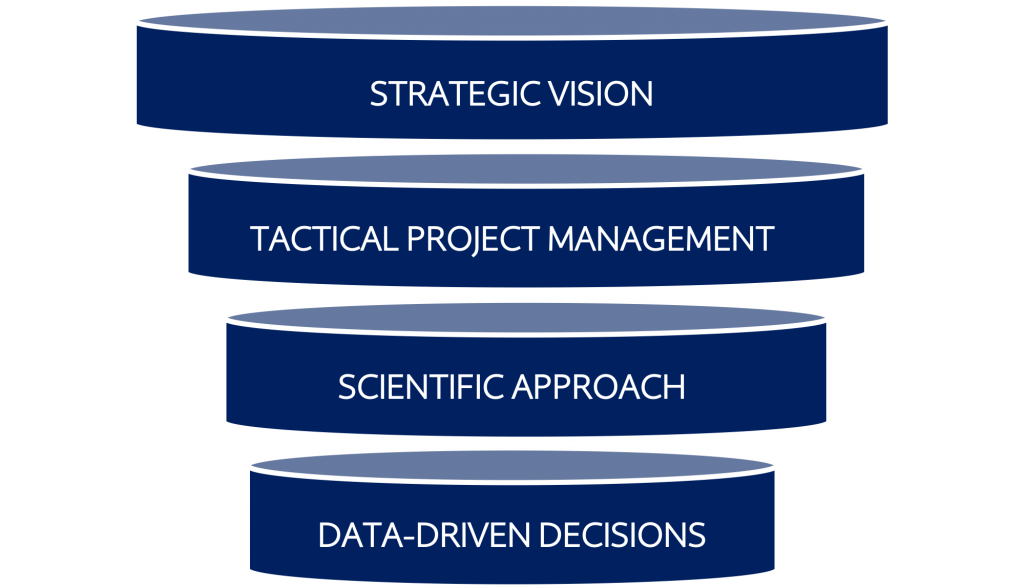Experimental Practices
Training Details
The SSMI® Experimental Practices Training Program provides the participant with the fundamental tools and procedures required to fully comprehend and capitalize on the training of experimental design, commonly referred to as Design of Experiments or simply DOE. This program will arm the participant with the insights necessary to plan, execute, analyze, interpret and report the results of statistically designed experiments as well as how the application of a statistically designed experiment can be used to establish the optimum operating conditions for one or more input variables.
Participants will learn how to translate a practical problem into a statistical problem and then isolate simple and complex cause-and-effect relationships which often remain undetected with traditional problem-solving methods. Students will learn how to depict and communicate the results of a statistics-based experiment in down-to-earth language. The instructional content also provides the participant with helpful insights, short-cuts, and tips on how to establish a post-experiment action plan.
In addition, a primary focus is placed on the key design principles, primary methods of data analysis, and powerful graphical procedures that drive success. From here, the participant is fully prepared to move on to more advanced experimental methods and statistical procedures. Reinforcement of major concepts, techniques, and applications is realized through exercises, scenarios, case studies, and field studies.
The body of knowledge associated with this program of study is organized into three primary segments: Global Concepts, General Practices and Technical Practices.
Global Concepts
- Training Orientation
- Breakthrough Vision
- Process Management
General Practices
- Quality Tools
- Basic Statistics
Technical Practices
- Hypothesis Testing
- Confidence Intervals
- Parametric Methods
- Experimental Methods
- Measurement Analysis
To obtain the SSMI® Experimental Practices Certification, participants are required to complete the following requirement:
Completion of 9 Knowledge Assessments Exams. Each module assessment comprises of 6 to 70 questions which participants need to score more than 70%
The SSMI® Experimental Practices program has a duration of 60 hours of video-lectures.
Our Training Formats
Benefits of a Lean Six Sigma Certification

Improves Execution

Builds customer loyalty

Generates greater returns

Certifies your talent

Improves work performance

Open new doors

Applies everywhere
Program Architect
Dr. Harry has been widely recognized as the principal architect and pioneer of Six Sigma, developed in Motorola where he was responsible for the research and development of advanced engineering and statistical models. All the training offered by SSMI are the result of 30+ years of application of these models. Even though many companies worldwide now offer Lean and Six Sigma training, SSMI is the only Institute in the world to possess the original body of knowledge and framework which made this methodology one of the most successful and powerful in the world.


